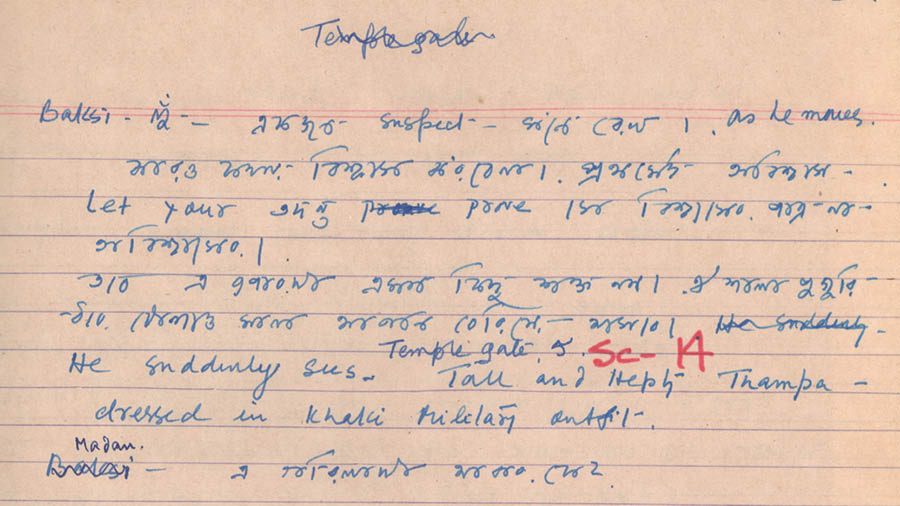A historical dictionary of the Bengali language using digital technology and digitisation of 90 manuscript volumes of Jibanananda Das, including many unpublished works, are among some of the valuable projects of the School of Cultural Texts and Records (SCTR) at Jadavpur University (JU) that have been stalled because of paucity of funds.
The SCTR is one of JU’s centres of interdisciplinary learning. It was established in 2003 to research the textual underpinning of human society and cultural life by focusing on digital archiving, digital humanities, and cultural informatics. The School has worked on several significant projects, including the digitisation of Buddhadeva Bose’s English and Bengali manuscripts, Arun Kumar and Badal Sircar's extant manuscripts and roughly 8,600 pages of Suchitra Mitra's manuscripts, typescripts, and offprints.
A complete online variorum of Tagore’s works in Bengali and English called Bichitra — the largest integrated database of primary documents relating to a single author in the world — is perhaps the most significant initiative the School has undertaken. The first project of its kind, it had been developed entirely by young professionals below the age of 35 from West Bengal.
Despite such projects and much more to its credit, the SCTR's recent initiatives have come to a crippling halt because of a severe lack of funds.
“We have always had a paucity of funds. At Jadavpur University, the schools are a recent phenomenon. There was no steady support from anywhere. The schools had to make their own money by running their projects, which would be supported by organisations. Earlier there would be a flow of projects coming in. The pandemic put an end to that and for two years we did not have any projects. Digitisation is hands-on work that cannot be done remotely. We had a few trained people. While some of them left, some stayed back and we had to keep supporting them. What the School does is resource-intensive, that is why we need the money,” said Professor Abhijit Gupta, director of the School.
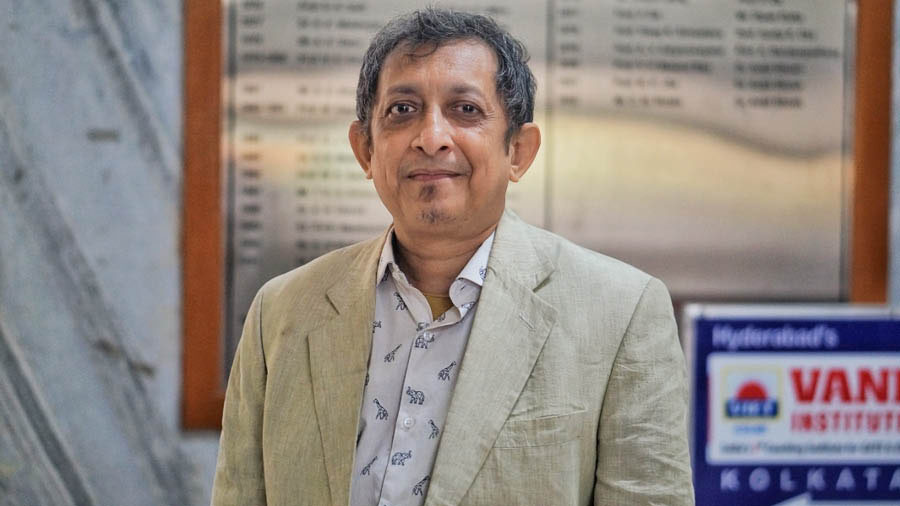
‘We have always had a paucity of funds. At Jadavpur University, the schools are a recent phenomenon. There was no steady support from anywhere. The schools had to make their own money by running their projects, which would be supported by organisations’ said Professor Abhijit Gupta, director of the SCTR Soumyajit Dey
‘Need to preserve the physical basis of culture’
Sukanta Chaudhuri, Professor Emeritus and founding director of the School, blames the sorry state of the school on lack of interest in Bengali literature.
“The wider curiosity in Bengali literature has gone down among the people, even among the Bengali literary public,” Chaudhuri said.
“When we talk about so-called ‘cultural matters’, we think of it as something purely mental that has to do with ideas, emotions, and abstract things. But there is always a physical basis to culture such as a manuscript or a record for music. Unless the physical basis for culture is properly preserved, then you cannot access it, let alone understand it,” said Chaudhuri, underlining the importance of preserving invaluable pieces of artistic creation.
Even though the School had been set up with the support of University Grants Commission under its schemes for University with Potential for Excellence and Major Research Projects and subsequently supported by the British Library’s Endangered Archives Programme, the Indira Gandhi National Centre for the Arts (New Delhi), Sir Ratan Tata Trust, the British Council, and other such organisations, it now faces a crisis with these grants dried up.
Currently, it is the voluntary service rendered by the faculty that keeps the school alive. To ensure that the school keeps functioning, it is important to sustain the young project staff team, whose hard work is the single biggest contributor to the School's success.
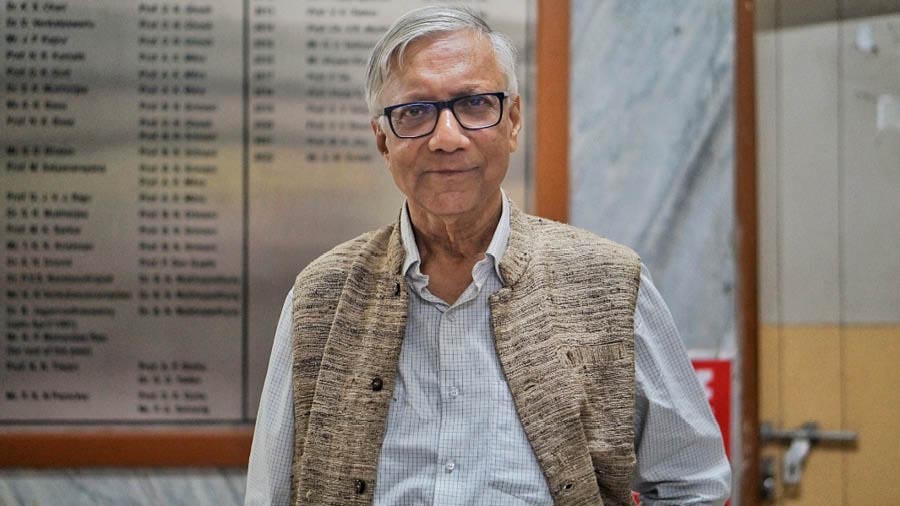
‘The wider curiosity in Bengali literature has gone down among the people, even among the Bengali literary public,’ Sukanta Chaudhuri, Professor Emeritus and founding director of the School said Soumyajit Dey
Stalled projects
The major projects that are stalled are Shabdakalpa — a historical dictionary of the Bengali language using digital technology and the digitising and organising of 90 manuscript volumes of Jibanananda Das, including a large number of his unpublished material.
Explaining the financial needs for the stalled projects, Chaudhuri pointed out that the Jibananada Das project would “require a very modest sum of money”. But Shabdakalpa would require a larger amount. “It (Shabdakalpa) is a very exciting project and the other languages which have something of the sort are English and Dutch. The computer program necessary for the project is ready. We have even got a pilot corpus of downloaded material. This is being uploaded to the dictionary's database. While we have enough money perhaps to continue with it, what we would need is big money that would help us to set up a capital fund, and then carry out the work from the interest that we earn.”
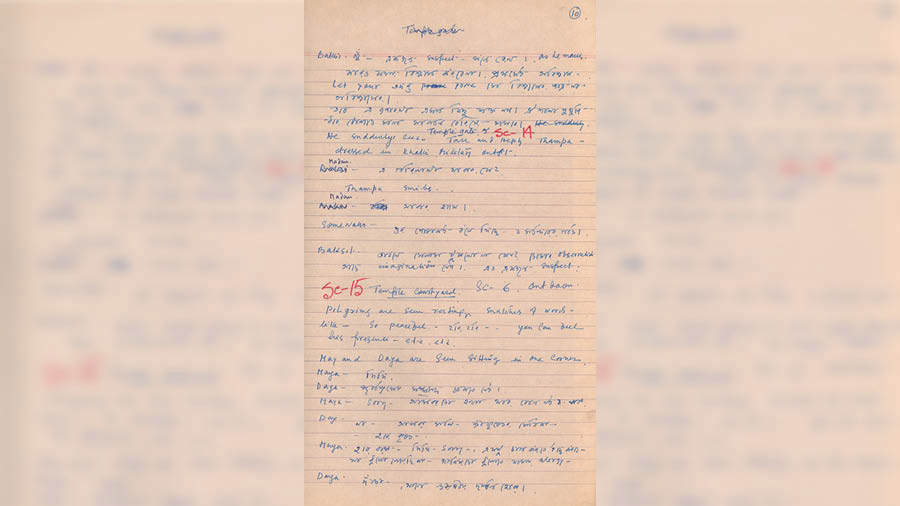
A digitised version of Tapan Sinha’s screenplay ‘Baiduryya Rahasya’ SCTR
‘Not negligence, but indifference’
“This is not negligence, but indifference. We as a community don’t care,” said Chaudhuri, while explaining the reason for the predicament facing the School. Even though some of the previous work had been supported by the government, funding has drastically declined from all quarters. The School also has not been able to secure corporate sponsorship and its proposals have been met with disinterest.
But archiving is of immense importance for researchers, academics and even the general public. “The general idea for us is to make the archives more appealing to the general public. We intend to keep doing brief training programmes for those who want to digitise their family archives. Even companies want to archive their documents. There is a demand for archive literacy. If we are able to create small courses and consultancies both paid and unpaid, then we can hope for our work to travel outside. We have the knowledge and expertise to suggest cheap solutions,” Gupta said.
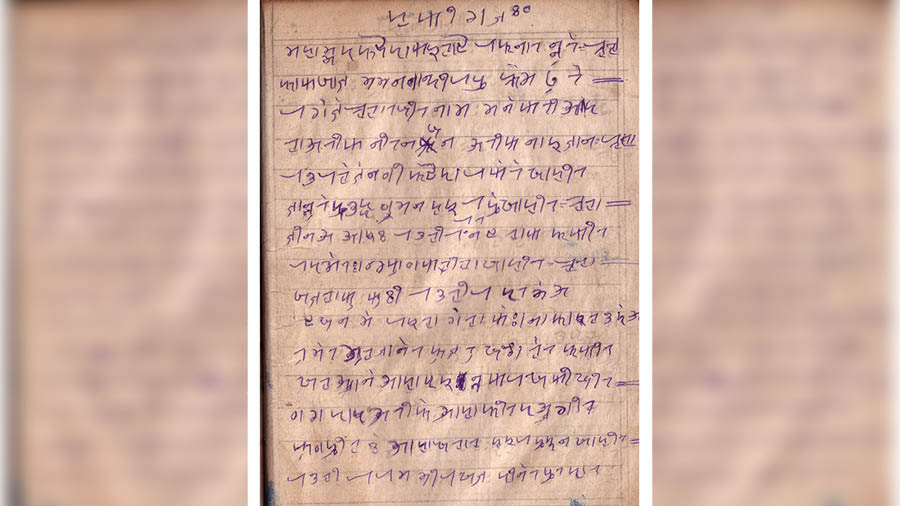
Digitised Sylhet Nagri text SCTR
Plea for support
A formal request for financial support has been issued by the School. The appeal emphasises how just two permanent staff would help in its seamless functioning.
To that end, the School is in a position to receive contributions from India and abroad. The university is also eligible for support from corporates under their Corporate Social Responsibility schemes.
“The Jibanananda manuscripts are a huge treasure trove but now the whole thing is shut. We also wanted to set up a website on Jibanananda Das along the lines of Bichitra. We would like to do so many things but are unable to do them. Meanwhile, a huge amount of things are getting lost from our memory, consciousness and culture,” Chaudhuri said.
